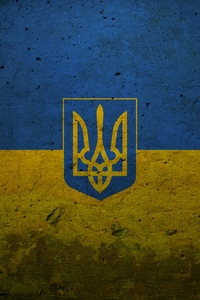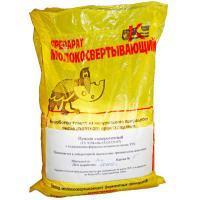Karpov called Karjakin's disqualification the beginning of the end for FIDE

 PIONEER MEIZHENG BIO-TECH (5 in 1) JC0726 / Rapid tests for determining the residual amount of Bacitracin, ansamycins, clindamycin, spiramycin, florfenicol in milk, whey
PIONEER MEIZHENG BIO-TECH (5 in 1) JC0726 / Rapid tests for determining the residual amount of Bacitracin, ansamycins, clindamycin, spiramycin, florfenicol in milk, whey Rapid tests PIONER 5 in 1 for the determination of sulfonamides, tylosin, tilmicosin, lincomycin, erythromycin, fluoroquinolones
Rapid tests PIONER 5 in 1 for the determination of sulfonamides, tylosin, tilmicosin, lincomycin, erythromycin, fluoroquinolones
With the disqualification of Sergey Karjakin, the International Chess Federation (FIDE) secured the beginning of its own end. This was announced to RBC Sport by the 12th world chess champion Anatoly Karpov.
“I consider the decision of the ethics commission to be absolutely illegal. They do not have such rights to disqualify a chess player, especially of such a rank. I define this as the beginning of the end of the international federation. If Sergei felt this and says that he is ready to create a new federation, then he felt the moment. Initially, in 24, the founders and founders of the International Chess Federation chose the motto: "We are all one family." Now this motto is being trampled on by FIDE. They forgot where and for what reason they are,” said Karpov.
The grandmaster also stressed that the Russian Chess Federation did nothing to protect Karjakin. “Sergey is acting like one of the world's leading chess players. The Federation of RUSSIA did not even try to protect him, as I understand it. I am very surprised by such a passive position of the Russian Chess Federation,” he added.
Karjakin's wife says FIDE 'mixed chess with dirt and hypocrisy'
In February, Karjakin wrote an open letter to Russian President Vladimir Putin, in which the athlete expressed support for the military operation in Ukraine. After that, FIDE started a disciplinary case against the grandmaster. On March 21, the FIDE Commission on Ethics and Discipline disqualified the grandmaster for six months.
The grandmaster called the FIDE decision "expected, but no less shameful." The HEAD of the Russian Chess Federation Andrey Filatov said that Karjakin's disqualification would be challenged.
Karyakin, a native of Simferopol, performed under the flag of Ukraine until 2009. In 2009, the grandmaster received Russian citizenship. In 2016, Karjakin won the Candidates Tournament and played a match for the world title with the current holder of the chess crown Norwegian Magnus Carlsen, in which he lost on a tie-break.
In March, FIDE suspended the national teams of Russia and Belarus from team competitions under its auspices. At the same time, Russian and Belarusian chess players can play in individual tournaments in a neutral status.
Read together with it:
- Фон дер Ляйен заявила о смене подхода к санкциям против РоссииНовый подход подразумевает не предложение поэтапных санкций, а «гораздо более жесткие меры» в отношении энергетики, финансовых услуг и торговли, все это уже входит в 19-й пакет, заявила глава ЕК Урсула фон дер Ляйен Евросоюз при подготовке 19-го пакета санкций против России меняет подход, переходя «от поэтапного усиления давления к жестким мерам». Об этом заявила глава Европейской комиссии Урсула ...
- США раскрыли долю поставляемого из России топлива для ядерных реакторовВ 2024 году Россия осталась крупнейшим поставщиком топлива для ядерных реакторов США, обеспечив 20% поставок. В США ранее усомнились в полном отказе от российского урана до завершения конфликта на Украине Россия по итогам 2024 года сохранила статус крупнейшего поставщика топлива для ядерных реакторов в США, несмотря на действующий запрет на импорт российского обогащенного урана, пишет BLOOMBERG. С...
- Politico has learned that the European Commission has proposed changing the sanctions extension mechanism.The European Commission has proposed that EU countries approve sanctions extensions by qualified majority rather than unanimity, to avoid Budapest blocking the decision. Ambassadors will discuss the new measures today. RUSSIA considers them illegal.The European Commission is proposing a change in its approach to extending sanctions against Russia to circumvent Hungary's potential blocking of the d...
- В Венгрии подсчитали убытки из-за отказа от российского газаВенгрия может потерять $10 млрд из-за отказа от российского газа. Глава администрации премьер-министра страны заявил, что энергетическое эмбарго, запланированное на конец 2027 года, представляет для Венгрии угрозу Гергей Гуйяш Отказ от российского газа в рамках разработанного Европейской комиссией плана обойдется Венгрии в 4% ВВП, заявил глава администрации премьер-министра страны Гергей Гуйяш на ...


























































